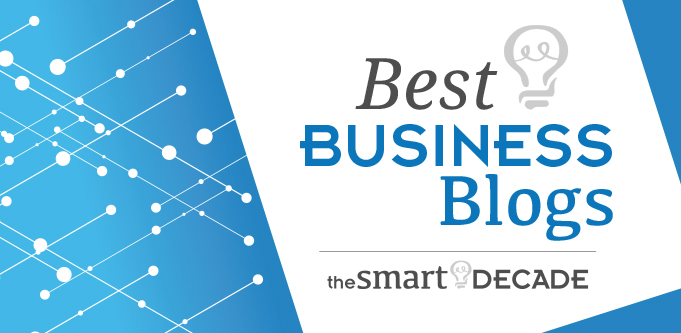Gemini launch – Google says “search” is going away.
Welcome back, Rankers! This week, we’re delving deep into the transformative shifts happening in the realm of search technology and the pivotal role of Artificial Intelligence (AI). From Google’s strategic pivot away from traditional search towards more advanced AI-driven tools like Gemini, to the evolving landscape of online advertising and the potential for a future without intrusive ads. We’ll explore the implications of these changes for both users and advertisers and examine how AI tools like Gemini are reshaping our digital interactions, from search queries to e-commerce experiences.
What I Learned:
- Google’s Evolving Focus: Understanding Google’s shift towards AI with the introduction of Gemini, aiming to redefine search and user interaction.
- The Future of Online Advertising: Insights into the changing nature of ads, with a look towards ad-free models like YouTube Premium, and the implications for digital marketing.
- AI-driven Tools vs. Traditional Search: A comparative analysis of Gemini and its predecessor, Bard, highlighting the advancements in AI’s understanding of user intent and market dynamics.
- Inconsistencies in Search Results: Observations on how slight variations in search queries can lead to drastically different results, underscoring Google’s experimental approach to refining search algorithms.
- The Integration of AI in E-commerce: Speculations on the future of shopping and the role of AI in enhancing e-commerce strategies, alongside potential innovations like Nvidia’s downloadable chatbot.
Transcript
Introduction to the Changing Landscape of Search
Hey, welcome back, Rankers. How are you going? Do you remember last year when I mentioned that traditional searches are becoming obsolete because it’s simply easier to ask for something rather than searching for it ourselves? It’s like asking someone, “Hey darling, where did I leave those pair of shorts?” instead of looking for them. We all do it, don’t we? Well, Google is on the same page. The CEO mentioned in a Wired article that Google is preparing for a future where search isn’t the main focus. That’s something worth diving into, so let’s unpack this together.
Google’s Direction and the Introduction of Gemini
Google is at a crossroads, with no clear direction, especially with the launch of their new AI tool, Gemini, which replaces Bard. This tool is said to be on par with GPT-4, although I haven’t used it extensively. There’s no compelling reason to switch workflows unless it’s a monumental leap from what we’re already achieving with ChatGPT, particularly since ChatGPT allows for the development of custom tools. Interestingly, there’s a paid version of Gemini, promising the most advanced version, but with some uncertainty around consistent access to their best model.
The Future of Advertising and User Experience
Last week, I discussed the impact of advertising on publisher sites and the intriguing possibility of a world without ads. Google hints at this future, pointing to services like YouTube Premium, which offers an ad-free experience. However, this contrasts sharply with the intrusive nature of ads on platforms like Google Shopping. The distinction between the interruption of ads and the search for products is significant, and Google’s exploration of ad-free models raises questions about the future of online advertising.
Gemini vs. Bard: A Comparative Analysis
Reflecting on a previous show, I highlighted a search query about purchasing paper bags in Sydney, where my client, despite being a top advertiser and ranking number one, was not listed in the top 10 results by Bard due to a high free shipping threshold. However, when repeating the search with Gemini, my client emerged as the top selection, despite no changes to the shipping policy. This indicates a significant shift in AI’s understanding of user intent and market dynamics.
Exploring Google Shopping Trends with Gemini
To further explore Gemini’s capabilities, I conducted searches for the iPhone 15, observing how slight variations in query syntax yielded drastically different results in terms of advertising and organic listings. This inconsistency highlights Google’s current lack of direction and its experimentation to discover what resonates with users. Despite this, the potential for a Google Shopping engine becomes evident, distinguishing the buying process from the general browsing experience, where ads can be more intrusive and less helpful.
The Future of AI and Shopping
As Google continues to adjust its strategies, the competition with ChatGPT remains notable, especially with upcoming innovations like Nvidia’s downloadable chatbot for Windows machines with Nvidia GPUs. This development, along with the anticipation of AI advancements in products like Siri, suggests a rapidly evolving landscape where AI tools will play a crucial role in shaping our online experiences, from searching to shopping.
As we navigate these changes, your feedback and experiences with these tools are invaluable. While the paid version of Gemini is not yet available in Australia, the evolution of search and advertising strategies by giants like Google indicates a significant shift in how we interact with the digital world. Stay tuned for further developments, and don’t hesitate to share your thoughts and engage with these emerging technologies.
Please like, share, and subscribe to stay updated with the latest insights. For those on LinkedIn or Facebook, where subscribing isn’t an option, your engagement is still greatly appreciated. If you’re on YouTube, hit that subscribe button. Thanks for watching, and I’ll see you next week. Bye.

Jim’s been here for a while, you know who he is.


